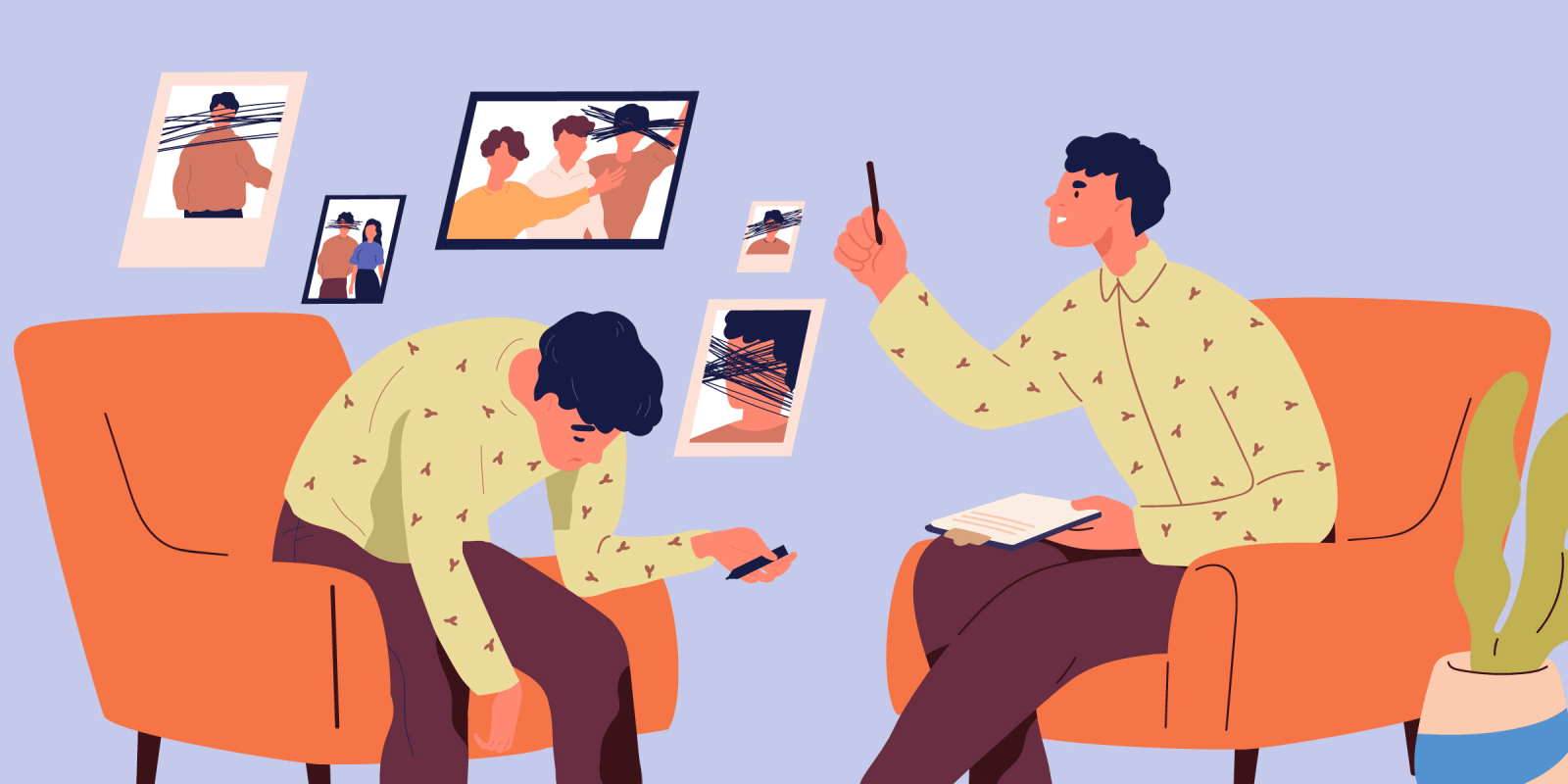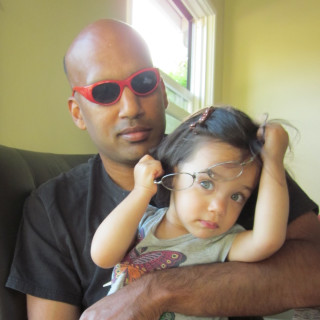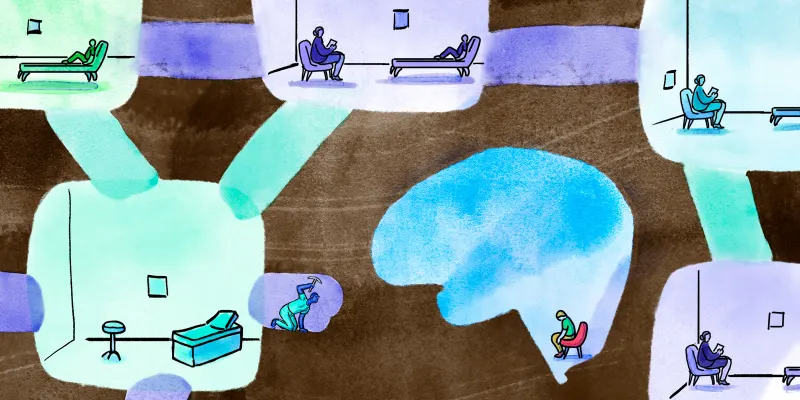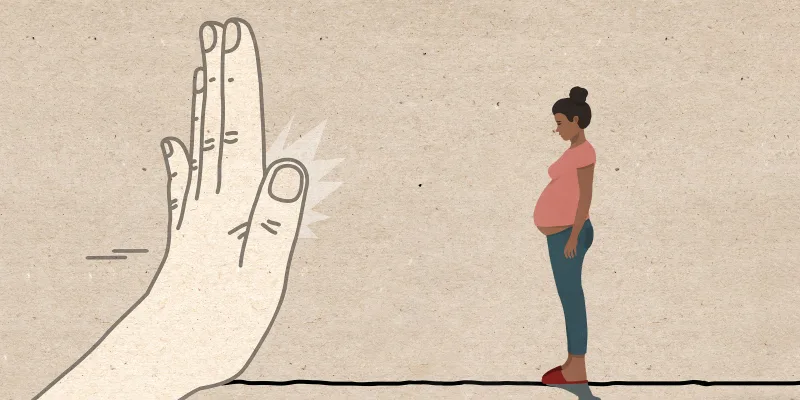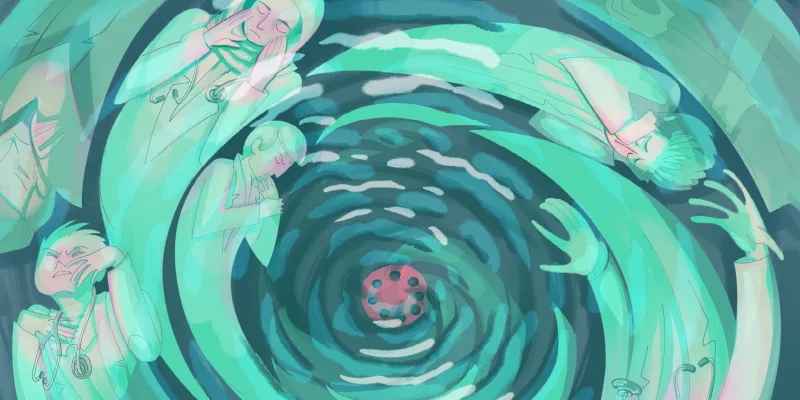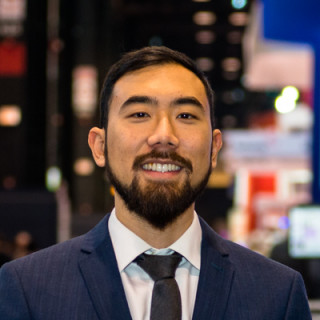Among items of furniture that are synonymous with a profession, perhaps none is more so than a psychiatrist’s couch. In Hollywood depictions it is a welcoming chaise lounge, a slender but luxurious invitation to share intimate secrets.
In real life, psychiatrists’ offices are more modest. And often there is another, equally important chair. It is ergonomically designed, with a high back and adjustable arms. The psychiatrist occupies this special seat. By virtue of education and income, they enter the treatment venue in a position of privilege. As a patient walks in, they are asked to yield money, time, and personally traumatic memories. The distance between chair and couch may be only a few feet, but these disparities make the gulf seem infinite.
So what, some of you may ask? Are we not all trained to endure “assigned seating” from an early age? Are privilege and inequality not a fact of life? In response, I grant that physical arrangements are indeed used to confer dominance throughout life. But I call special attention to the physical arrangement of a psychiatrist’s office because it is a place I have experienced from both seats. And while the couch may appear comfortable, the experience of being there is anything but.
Are they judging me? What do they see? Do they approve? All of these unsettling questions roll past like abbreviations on a stock market ticker. As the doctor sits appraising the patient with a benign yet somber expression, invisible needles prod the patient’s skin.
I do not speak for all psychiatrists when I offer the queries above. But having seen the dark ravine of hopelessness in all its tangled detail, and having felt the oppressive descending web of anxiety, I appreciate the rawness of the point where vulnerability intersects with help seeking.
Though today I sit at my desk looking fit and well-dressed, I am a middle-aged man with three chronic diseases. Thanks to good fortune and medical advances, my conditions have been stabilized and I live a productive life. As I educate patients, I feel free to discuss what it’s like to have an electroencephalogram, the tricks that make swallowing a pill easier, and the realities of living with diabetes. But one door never opens: the one that hides my history of depression and anxiety.
I know very well the shame and discomfort of “mental health” diagnoses, for I feel the effects as well. But dare I mention the winter day when, as a college freshman, I sat for hours under an overhang, hoping that the falling snow and ice would freeze me to death? Dare I discuss the thousands of nights when I secretly hoped that I would not wake up, the mornings when I cried at having done so? How would an angst-ridden teen react to me if I revealed that I know what it feels like to despise one’s own existence? Just as patients fear to tread on this unsteady ground, I give my own psychiatric history a wide berth in our discussions. After all, I have the same fear of being negatively evaluated. Who wants a doctor with a history of cerebral hiccups?
Do I judge my patients? If this question is meant in a legal or moral sense, my answer is a resounding “No.” It is not the place of any clinician to mete out shame, guilt, or punishment. Instead, we must attempt to understand a person’s behavioral motivation within the context of their emotional and physical circumstances.
That said, there is a kind of judgment that ensues. It originates from the question of how well a patient’s emotions and behaviors fit with who they are and who they want to be. What I see is what a person shows me, and I assume that this will not be a fully drawn picture, for who among us dares to expose our true selves in all their imperfections? As for approval, I am predisposed to favor patients because I recognize that courage is required to admit that one’s life is broken and that help is needed to put it back together. We psychiatrists are natural fans of the underdog.
The Buddhists opine, “Life is suffering.” As I sit across the room from my patients, I accept this philosophy as a truth that binds doctor and patient together in common humanity. Given that we share the same capacity to suffer, should I not feel an urgency to relieve my fellow humans of their painful burdens? I remember what it was to feel chagrined at being born, to secretly wish that a car would veer off the road and hit me on a sidewalk. Death beckoned as a relief from suffering, but for now it has not taken me. I have survived. And now I see others attempting the same arduous feat of reluctant survival.
Twenty-five years on from the worst of my suffering, I know now that the toxic smog of emotional pain clouds not only one’s vision but one’s entire internal life. And, thanks to having been lifted from a fetid valley of despondency and carried to a fertile meadow of health, I also know that helping hands come in many forms. Some of those benevolent forces sit in spinning chairs with neutral yet benign facial expressions and a notepad. And some of them may visit my office for an hour, their hands cradling a head weighed down by the tribulations of an unfair life. It is my fantasy that life should follow a circular orbit, spinning like an ergonomic chair. I am proof that the illness can be transcended, that those who consider themselves broken may one day heal others. In the future, my patients may propagate this cycle. My daily efforts rely upon this inspiring notion that minds, like furniture, may be changed, lightened, and transported.
Have you ever been on the opposite side of the psychiatrist’s office? Share your experience in the comments below.
Mukund Gnanadesikan is a psychiatrist, novelist, and poet who lives in Northern California. His fiction debut, "Errors of Omission: A Novel," was released in November of 2020. Recent poems have been featured in Riverbed Review, Grand Little Things, Sledgehammer Lit, and Bluepepper, among others.
If you or someone close to you is experiencing thoughts of suicide, please call the National Suicide Prevention Lifeline at 1-800-273-8255 or text HELLO to the Crisis Text Line at 741741.
Illustration Collage by Jennifer Bogartz / GoodStudio / shutterstock
